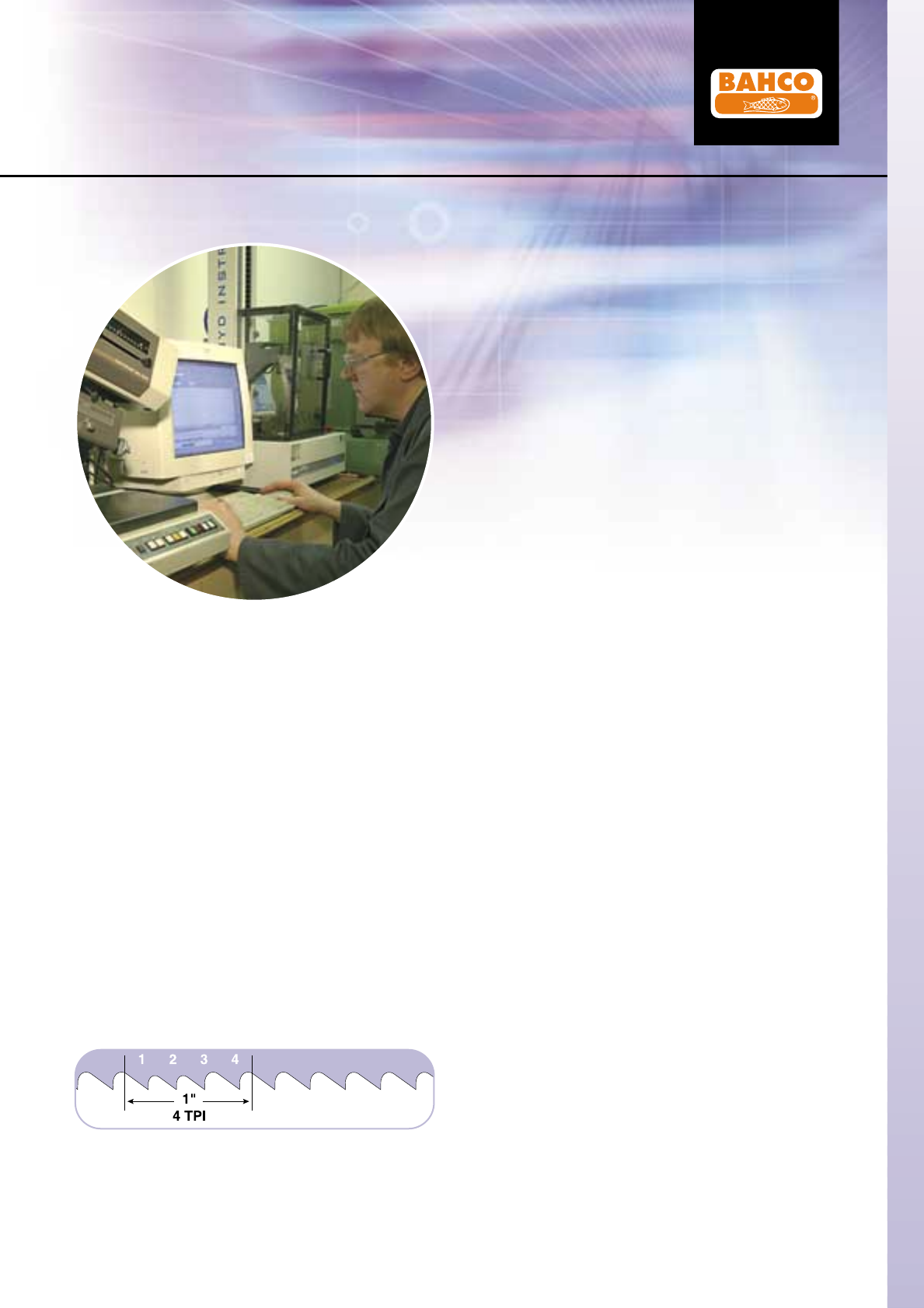
Teeth Per Inch (TPI)
The number of teeth per inch (TPI) defines the pitch of the
blade and can vary from less than 1 to 24.
Thin-walled workpieces like tubes, pipes, sheet etc.,
require fine teeth, otherwise there is a risk of tooth damage
or breakage.
Large cross sections should be cut with a coarse-pitched saw,
i.e. fewer teeth per inch. The fewer teeth engaged in the
workpiece the higher the cutting capacity. This is because the
penetration capacity of each individual tooth is greater if the
saw’s feed pressure is distributed over a fewer number of teeth.
A coarse pitch (few TPI) therefore increases productivity and
provides a desirable, large chip space.
Soft materials, such as aluminium and bronze, require a
large chip space. A coarse pitch prevents the chips from
building up and packing together in the gullets, which can
impair sawing and damage the blade.
Use the TPI selection guides to find the right pitch for
your application.
Bandsawing facts
Machine
Check frequently:
• The operation of the chip brush.
• The wear and alignment of the guides.
• The band tension with a tensionmeter (see page 29).
• The band speed with a tachometer (see page 29).
• The coolant concentration with a refractometer
(see page 29).
Coolant / Cutting fluid
The coolant lubricates, cools and carries the chips from the
cut. It is important to:
• Use good cutting fluid.
• Use recommended concentration of cutting fluid.
• Make sure that the cutting fluid reaches the cut with
low pressure and large flow.
Workpiece
• Make sure that the workpiece is firmly clamped so
that it cannot vibrate or rotate.
• Do not use bent or damaged workpieces.
Running in
To obtain the maximum blade life always use the
recommended band speed but lower the feed rate to 1/3-
1/2 during the first 10 minutes of cutting.
During the next 10 minutes increase the feed rate in stages,
until you have reached the recommended feed rate.
General Information
7


















